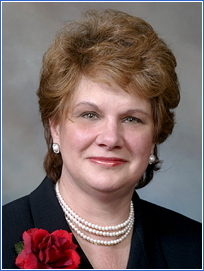An Open Letter to Bill Gates on Preparing Students for Algebra
Dear Mr. Gates,
You recently wrote, “Math is one area where we want to generate stronger evidence about what works. What would it take, for example, to get all kids to mastery of Algebra I?”
I believe I can answer your question. There have been two significant math studies done in the last decade, reaching very similar conclusions. The first was the National Mathematics Advisory Panel Report of 2008 commissioned by President George W. Bush. Here are some of their conclusions: students’ difficulty with fractions (including decimals and percents) is pervasive and a major obstacle to further progress in mathematics including algebra. The panel suggested curriculum should allow sufficient time to learn fractions, and teachers must know effective interventions for teaching fractions. Preparation of elementary and middle school teachers in mathematics needs to be strengthened; using elementary teachers who have specialized in elementary mathematics could be an alternative to increasing all elementary teachers’ math content knowledge by focusing the need for expertise on fewer teachers.
Another problem is that many textbooks are too long (700 to 1000 pages) and include non-mathematical content like photographs and motivational stories. Key topics should be built on a focused, coherent progression, and continual revisiting of topics year after year without closure should be avoided.
Lack of automatic recall in addition, subtraction, multiplication and division is a serious deficiency as is a lack of proficiency with whole numbers, fractions and certain aspects of geometry and measurement, which are the foundations for algebra. Of these, knowledge of fractions is the most important foundational skill not developed among American students.
The panel advised that algebra problems involving patterns be greatly reduced in state tests and on the NAEP assessment. Also districts should ensure that all prepared students have access to an authentic algebra course by 8th grade, and more students should be prepared to enroll in such a course by 8th grade.
The second important study, “Early Predictors of High School Mathematics Achievement” was published in June 14, 2012, and an article about it, entitled “Fractions are the key to math success, new study shows,” was posted at the Univ. of Michigan’s Institute for Social Research on June 18, 2012. Robert Siegler, a cognitive psychologist at Carnegie Mellon University, was the lead author of this study which analyzed long-term data on more than 4,000 children from both the United States and the United Kingdom. It found students’ understanding of fractions and division at age 10 predicted algebra and overall math achievement in high school, even after statistically controlling for a wide range of factors including parents’ education and income and children’s age and I.Q.
Univ. of Michigan researcher Pamela Davis-Kean, the co-author of the study, said, “These findings demonstrate an immediate need to improve the teaching and learning of fractions and division.”
Dr. Siegler stated, “We suspected that early knowledge in these areas was absolutely crucial to later learning of more advanced mathematics, but did not have any evidence until now.”
I know how interested you and your wife are in improving education, especially in math, for our students. As a state school board representative, I understand the importance of getting our teachers and students on track immediately. I believe we can succeed, though, if we will follow the advice given in these two studies. I would certainly be glad to discuss this subject with you or your staff.
Sincerely,
Betty Peters
